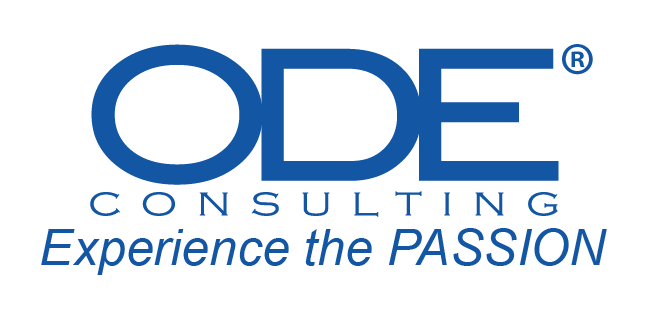ODE’s Approach to Integrated Event-based Learning
Dr Kavita Sethi, Principal Consultant, ODE Consulting ®

ODE’s Approach to Integrated Event or Scenario Based Learning is derived from the pedagogy of Phenomenon Based Learning (PBL), the starting point of which is constructivism[1], in which learners are seen as active knowledge builders
and information is seen as being constructed as a result of problemsolving. This approach provides an exciting inroad for the use of problem, scenario or event based curriculum development in executive learning.
Another tenet of ODE’s approach to Event or Scenario Based Learning is Situation Learning, often also referred to as Immersive Learning and is based on the principles of situated learning theory (Lave & Wenger, 1991)[2], which
argues that learning best takes place in the context in which it is going to be used, and situated cognition, the idea that knowledge is best acquired and more fully understood when situated within its context.
ODE firmly believes that for learning to be contextual and relevant in today’s business environment, real work related issues must provide the starting point for learning. Additionally, problems need to be viewed through a cross-functional
and multidisciplinary approach where the knowledge, skills and attitudes related to the issue at hand are studied by crossing boundaries between topics. This approach actively creates better opportunities for integrating different
subjects and themes as well as the systematic use of pedagogically meaningful methods, such as inquiry learning, problem-based learning, project learning, and portfolios.
ODE encourages learners to approach the identified event or problem holistically and the curriculum is built into bite sized learning modules which are geared towards different learning outcomes, bridging the boundaries between subjects
as also contextualizing learning modules to the actual working environment. While this integrated approach can be used in a wide range of contexts, it is especially effective when used to simulate real-world practice, providing opportunities
which may be difficult for participants to experience within the confines of a course that is content-led. Another plus of this approach is the versatile use of different learning environments such as blended and virtual learning
(e.g. in diversifying and enriching learning while using eLearning and virtual environments). At ODE this is actioned using the one-stop learning portal learn1thing.com which offers access to virtual learning, profiling and coaching
anytime, anywhere.
A key value-add to this approach to learning by ODE is that it develops customized interactive scenarios to support active learning strategies such as problem-based or case-based learning. This involves participants working their
way through a storyline, usually based around an ill-structured or complex problem, which they are required to solve. In the process they must apply their subject knowledge which is communicated through various learning platforms
including bite size learning pods and pre-reading for instance. This is followed through by critical thinking and problem solving in a safe, real-world context.
This integrated event or scenario is often non-linear, and can provide numerous feedback or coaching opportunities to participants, based on the decisions they make at each stage in the process. This approach may be self-contained,
in that completing the scenario is the entire task, or it may be a part of a larger learning (for example a leadership or strategy curriculum). Over the years ODE has developed many customised scenarios around topics as wide-ranging
as strategy, visioning, leadership, customer service excellence, crisis management and team effectiveness.
Identifying the trigger event or situation can be done using critical incidents, ongoing problems or challenging situations that have occurred in the organization. As discussion on the event or issue unfolds it points of departure
for learning, feedback, reflection and coaching. Alternatively, scenarios can be created, the complexity of which can range from a simple case study to a process based simulation that integrates videos, audios, mini case studies
and also assessments if needed. The next step is creating a storyboard that is contextualised to the problem or storyline.
No matter what approach is used to identify the trigger event or situation, ODE works with the client organization or participants to understand what needs to be achieved on completion of the learning engagement, and ensures that
the integrated curriculum is designed to lead to this learning.
[1] Phenomenon Based Learning, Pasi Silander, 2015
[2] Situated Learning: Legitimate Peripheral Participation, Jean Lave, Etienne Wenger,1991
